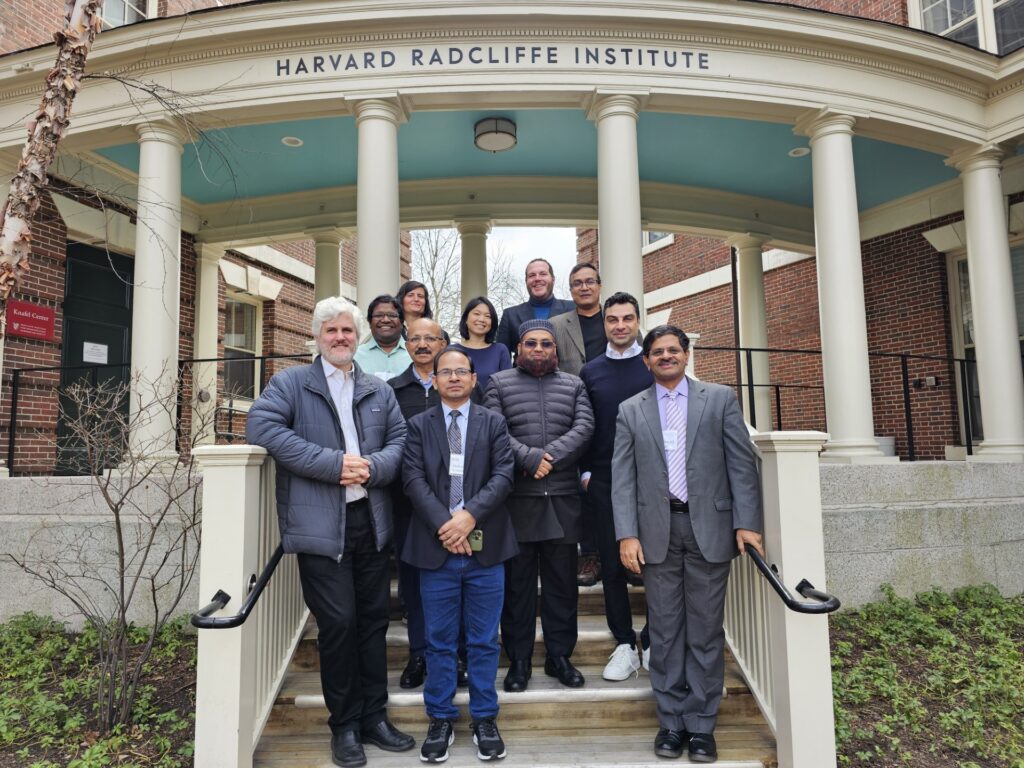Early in April, FutureWater participated in a pivotal workshop hosted by the prestigious Harvard Radcliffe Institute. The workshop convened experts to explore water productivity issues in Bangladesh, particularly focusing on the challenges faced by coastal regions grappling with water scarcity and salinity.
A key focus of discussion revolved around pioneering strategies aimed at bolstering resilience in irrigated agriculture, with an emphasis on harnessing the potential of satellite remote sensing technologies. Notably, FutureWater’s Irrigation Advisory Tool, SOSIA, garnered attention for its role in optimizing water utilization and enhancing crop yields amidst challenging environmental conditions. A tool which is currently further explored in the SOSIA+ project in Ghana and also applicable within the context of our MAGDA project.
However, amidst the promising technological advancements, the workshop underscored the critical importance of robust infrastructure and institutional capacity. Participants highlighted that while data-driven solutions offer immense potential, their efficacy hinges on foundational support provided by infrastructure development and governance mechanisms.
The collaborative nature of the workshop brought together a diverse array of participants, including representatives from NASA, the U.S. Geological Survey, the World Bank, and esteemed academic institutions such as the Harvard T.H. Chan School of Public Health, FAO, Washington University in St. Louis, the Department of Agricultural Extension in Bangladesh and the University of Washington. Such interdisciplinary cooperation underscores the collective commitment to addressing complex environmental challenges.



